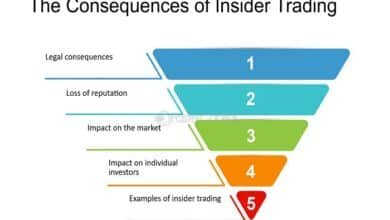Important Credit Card Fees & Charges you Must be Aware of

Credit cards not only provide additional purchasing power but also come with a number of benefits that can help users save a substantial amount on their regular spends. However, being a form of borrowing, the amount you spend on your card needs to be paid back within a specified period, failing which you would incur interest and late payment penalties. Along with this, credit cards carry several other charges applicable as per usage and situation. To ensure responsible credit card usage, cardholders must be aware of such some common fees and charges, as listed below:
Joining Fee and Annual Fee
The annual maintenance fee on credit cards is charged as joining fee in the first year of card issuance and as annual fee or renewal fee from second year onwards. This fee varies from one card to another. While it is lower for entry-level cards, the charges for premium cards may go as high as Rs. 50,000 or even higher in certain cases. When due, the fee is charged and added to your credit card bill for the month. Some cards, however, come with annual fee waiver conditions, where the fee is waived off on spending a minimum value on the card. For example, Flipkart Axis Bank Credit Card comes with an annual fee of Rs. 500, which is waived off on annual spends of Rs. 3.5 Lakh.
The annual charge on your credit card is not actually hidden but can be checked even before you apply for a credit card. To make a smart choice, users must check whether the card offers benefits that surpass the fee charged. Sometimes issuers might extend lifetime free offers for a certain period, say the first 3 years after which regular fee would apply.
Interest Rate/Finance Charges
The interest rate, also called finance charge, is applicable in case of partial/missed bill payments or when you withdraw cash from an ATM using your credit card. The interest rate usually varies from one issuer to another but it may also vary across different cards from the same provider. In comparison to other forms of loans, the credit card interest rates are the highest and this is the reason why credit card debts can easily go out of hand, when used irresponsibly. However, this charge can be easily avoided with on-time payments and responsible credit behavior.
Generally, credit cards come with an interest free period as well, ranging from 30 to 50 days, between a user’s last statement date and the current date. During this period, the transactions done with a credit card do not attract any interest. However, in case of outstanding due from your previous credit card bills or cash withdrawal, the interest free period is not applicable, as all new transactions are charged with interest rate on a daily reducing balance. This makes it important that you pay your credit card bill in full, without any delay.
- Cash Withdrawal Charges
While you can use your credit card to withdraw cash in case of emergencies, note that unlike a debit card, cash withdrawal transactions are not free on your credit card. Usually, you can withdraw up to 40% of the total credit limit as cash. For example, if the total credit limit on a card is Rs. 2 Lakh and the cash limit is 40%, the maximum amount that you can withdraw is Rs. 80,000.
Every time you withdraw cash using your card, a one-time cash withdrawal charge, (also called as cash advance fee) along with the finance charge is applicable. Thus, credit card cash withdrawal is one of the most expensive forms of credit, users must consider it only as the last resort. Usually, a percentage of the amount withdrawn is charged, for example most HDFC credit cards charge 2.5% of the withdrawn amount or Rs. 500, whichever is higher as cash withdrawal fee.
Foreign Exchange Mark-up Fee
Every time you make an international payment with your credit card, a foreign currency transaction fee or forex mark-up fee is charged for converting the payment into INR. The fee is applicable on retail transactions outside India, online spends done in a foreign currency, overseas ATM cash withdrawals, and on domestic transactions on POS linked to overseas accounts such as Duty Free Shops.
Most issuers charge a standard foreign exchange markup fee of 3.5% of the transaction value. Some cards however, charge a low or no forex markup fee, such as SBI Card Elite charges a low forex markup fee of 1.99%, Federal Bank Scapia credit card charges 0 forex markup fee.
Late Payment Charges
The late payment charges on your credit card are applicable when you fail to pay even the minimum amount due by the due date. This fee is charged along with the finance charges and is usually a flat amount, charged as per the outstanding balance. An importanty point to note is that if you pay the minimum due amount, late payment charges are not applicable, but you still pay the finance charge on the remaining balance and on new payments until the bill is fully paid.
Balance Transfer Charges
You can transfer your outstanding credit card bill from one card to another. This is called a credit card balance transfer, which comes a processing fee, also referred to as balance transfer charges. Usually a percentage of the balance transfer amount is charged, subject to a maximum value, which may vary across issuers and the cardholder’s profile. Generally, balance transfers also charge an interest, which would be lower than the usual finance charges on credit cards.
Over Limit fee
Every credit card comes with a predefined credit limit up to which you can make your credit card purchases. When you exceed the limit by spending beyond this value, an over limit fee is charged as a percentage of the over limit amount. The over limit fee on some credit cards, particularly premium cards, may be waived off.
These were some common fees and charges applicable on your credit card. You must understand that owning a credit card is a financial responsibility that must not be taken for granted. Misuse, overspending and irresponsible credit can lead to debt, often creating a spiral that is difficult to get out of. While the above mentioned charges make credit cards a risky and costly tool, responsible usage can not only help you avoid these, but can also help you save a significant amount.
Note: A GST of 18% is applicable on all credit card fees, interest and other charges.




